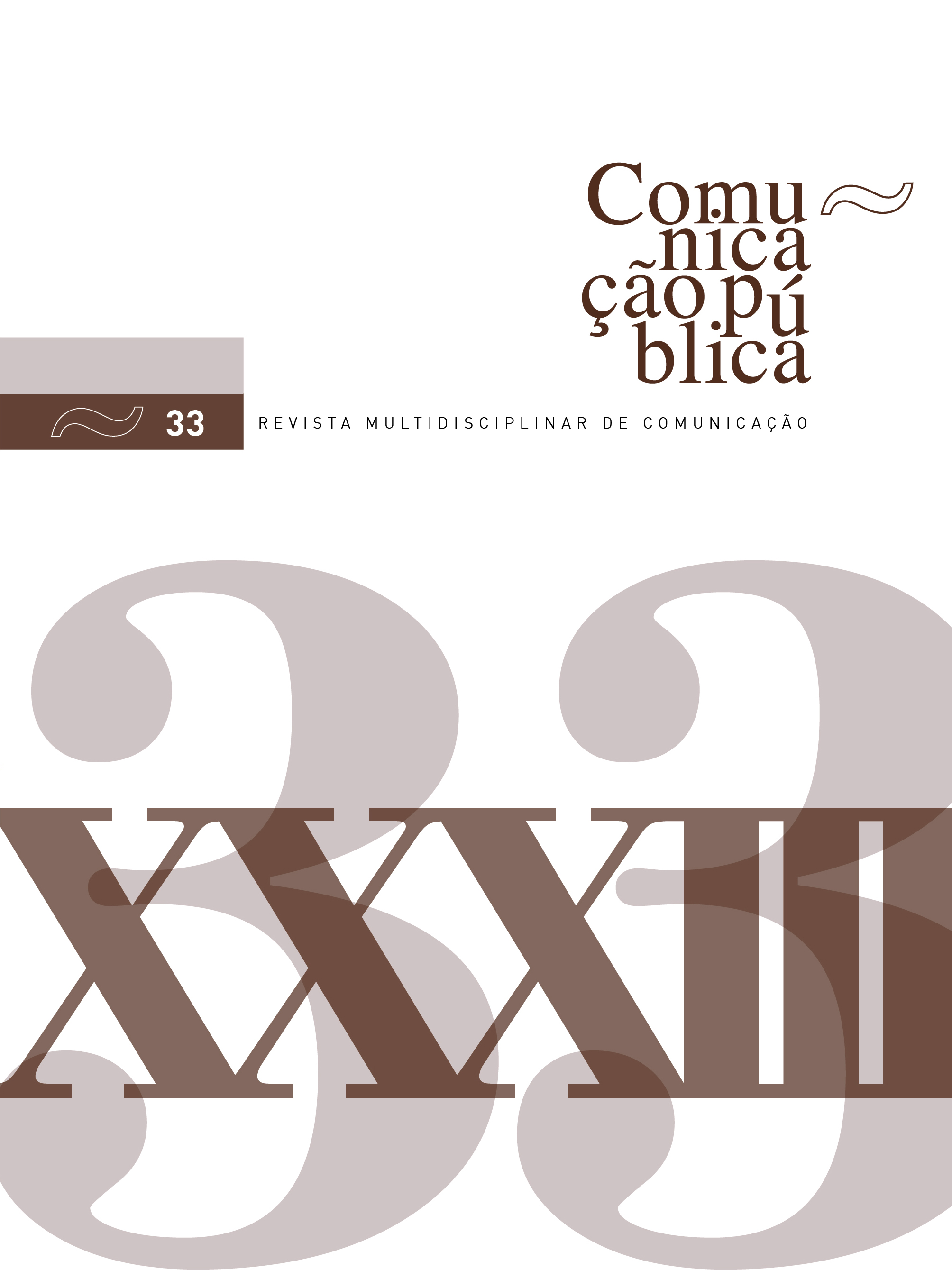Pensamento crítico aplicado às literacias mediáticas e digitais
DOI:
https://doi.org/10.34629/cpublica.515Palavras-chave:
digital, literacia, literacia mediática, media, pensamento críticoResumo
Quais são os benefícios do pensamento crítico para a prática diária de consumo de conteúdos mediáticos? Quais são os critérios de qualidade da informação nos media e redes sociais? O pensamento crítico é um processo mental cuidadoso e perspicaz de análise e avaliação. Nos usos e influências dos media, é a capacidade de compreender conotações, argumentos ideológicos e pressupostos implícitos que muitas vezes são informações falsas ou persuasivas. Este texto é uma perspetiva sociológica sobre a relação entre o pensamento crítico e as literacias mediáticas e digitas. Com base numa abordagem teórica e conceptual, suportada por uma pesquisa bibliográfica, defende-se a atitude crítica como ferramenta de literacia mediática. O objetivo é caracterizar o pensamento crítico, relacioná-lo com a literacia mediática e destacar a crítica como ferramenta contra a desinformação na esfera pública (digital).
Downloads
Referências
Aristotle. (2016) Metaphysics. Hackett Publishing Company.
Baran, S. J. (2014). Introduction to mass communication: Media literacy and culture. McGraw-Hill.
Baudrillard, J. (2005). The intelligence of evil or the lucidity pact. Berg Publishers.
Bauman, Z. & Lyon, D. (2013). Liquid surveillance. Polity Press.
Bowell, T. & Kemp, G. (2002). Critical thinking: A concise guide. Routledge.
Browne, M. N. & Keeley, S. M. (2018). Asking the right questions: A guide to critical thinking. Pearson.
Buckingham, D. (2000). The making of citizens: Young people, news and politics. Routledge.
Cantoni, L. & Tardini, S. (2008). Communicating in the information society: New tools for new practices. In P. C. Rivoltella, P. C. (Ed.), Digital literacy: Tools and methodologies for information society (pp. 26-44). IGI Publishing.
Cottrell, S. (2005). Critical thinking skills: Developing effective analysis and argument. Macmillan.
Couldry, N., Livingstone, S. & Markham, T. (2007). Media consumption and public engagement: Beyond the presumption of attention. Palgrave MacMillan.
Dewey, J. (1998). How we think. Dover Publications.
Elder, L. & Paul, R. (2016). The thinker’s guide to the art of Socratic questioning. The Foundation for Critical Thinking.
Fisher, A. (2011). Critical thinking – An introduction. Cambridge University Press.
Flew, T. & McElhinney, S. (2006). Globalization and the structure of new media industries, In L. Lievrouw & S. Livingstone (Ed.), The handbook of new media (pp. 287-306). Sage.
Foresman, G. A., Fosl, P. S., & Watson, J. C. (2017). The critical thinking toolkit. Wiley Blackwell.
Fowler, R. (2011). Mythos and logos. Journal of Hellenic Studies, 131, 45-66.
Goodman, N. (1988). Ways of worldmaking. Hackett Publishing Company.
Hague, C. & Payton, S. (2010) Digital literacy across the curriculum. FutureLab.
Han, B.-C. (2017). In the swarm: Digital prospects. MIT Press.
Heidegger, M. (1977). The question concerning technology and other essays. Garland Publishing.
Hobbs, R. (2016). Historical roots of media literacy. In R. Hobbs (Ed.), Exploring the roots of digital and media literacy through personal narrative (pp. 9-36). Temple University Press.
Hoechsmann, M. & Poyntz, S. R. (2012). Media literacies: A critical introduction. Blackwell.
Kellner, D. (2016). On Herbert Marcuse. In R. Hobbs (Ed.), Exploring the roots of digital and media literacy through personal narrative (pp. 126-137). Temple University Press.
Livingstone, S. & Sefton-Green, J. (2016). The class: Living and learning in the digital age. New York University Press.
McLuhan, E. & Zingrone, F. (1997). Essential McLuhan. Routledge.
McLuhan, M. (1953). Culture without literacy. Explorations, 1, 117-127.
McLuhan, M. (1962). The Gutenberg galaxy. The University of Toronto Press.
McLuhan, M. (1967). The medium is the message. Bentam Books.
McLuhan, M. (1994) Understanding media: The extensions of man. MIT Press.
McLuhan, M. & Fiore, Q. (1989). War and peace in the global village. Touchstone.
Moore, B. N. & Parker, R. (2017). Critical thinking. McGraw-Hill Education.
Ortega y Gasset, J. (2009). Meditação sobre a técnica. Fim de Século.
Potter, J. W. (2001). Media literacy. Sage.
Potter, J. & McDougall, J. (2017). Digital media, culture & education: Theorising third space literacies. Macmillan.
Silverblatt, A., Smith, A., Miller, D., Smith, J., and Brown, N. (2014). Media literacy: Keys to interpreting media messages. Praeger.
Warnick, B. (2002). Critical literacy in a digital era: Technology, rhetoric, and the public interest. Lawrence Associates Publishers.
Downloads
Publicado
Edição
Secção
Licença
Direitos de Autor (c) 2022 Copyright (c) 2022 Author

Este trabalho encontra-se publicado com a Licença Internacional Creative Commons Atribuição-NãoComercial 4.0.
Os conteúdos da Comunicação Pública estão licenciados com uma licença Creative Commons - Atribuição-NãoComercial 4.0 Internacional.




